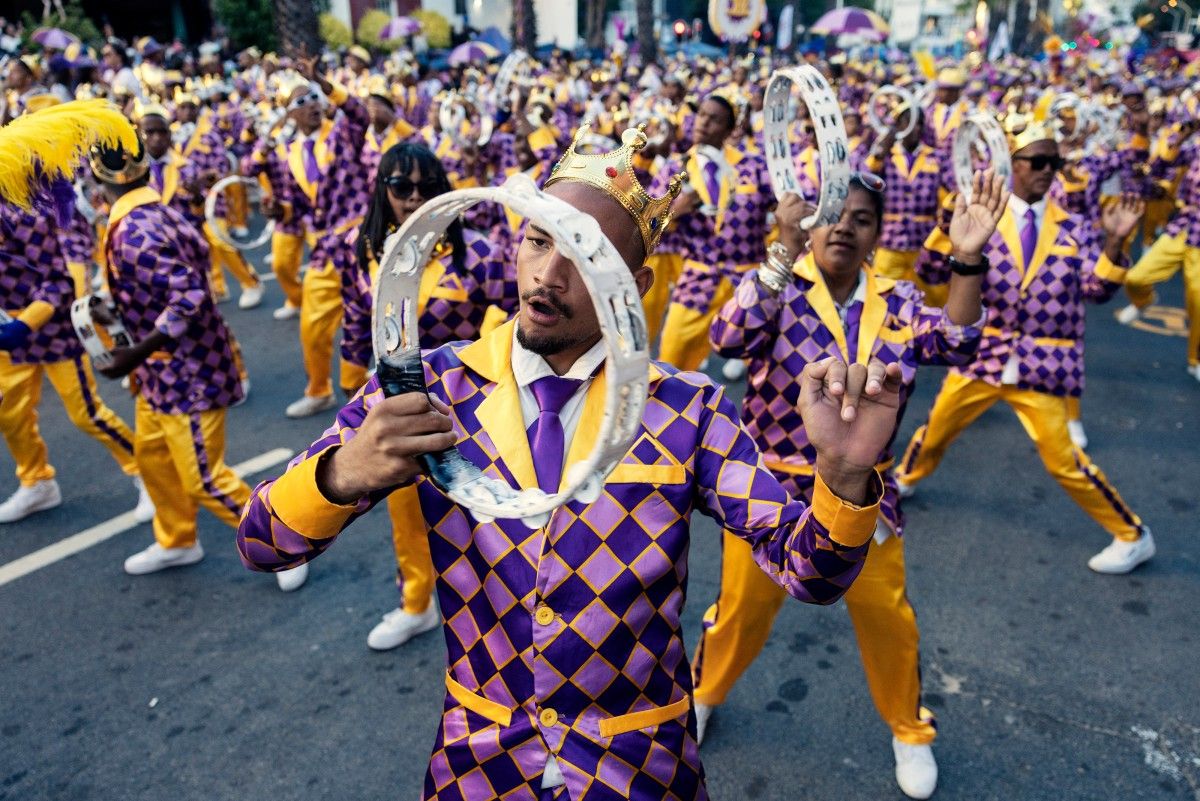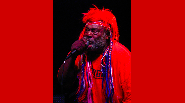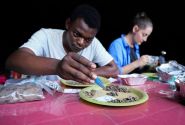
Cape Town’s Kaapse Klopse Karnival lit up the city’s streets with vibrant costumes, music, and dance, celebrating a rich cultural heritage rooted in the history of slavery. This iconic event drew thousands, blending tradition and resilience in a joyful spectacle.
Cape Town’s historic streets erupted in a riot of color and music on Saturday, January 4, as thousands of costumed minstrels paraded through the city’s center in an exuberant celebration of cultural heritage and resilience. This annual carnival, deeply rooted in the city’s history of slavery, drew large crowds and cemented its reputation as one of the most significant cultural events on the African continent.
Kaapse Klopse Karnival
Dressed in dazzling uniforms, sequined hats, and vibrant face paint, performers twirled parasols as they marched and danced to the rhythmic sounds of trumpets, trombones, tambourines, and drums. Known as the Kaapse Klopse Karnival, the parade honors Cape Town’s mixed-race community, descendants of slaves brought to the city during the Dutch colonial era in the 17th century. Enslaved people from Africa, Southeast Asia, and the Indian Ocean islands were forced to labor for colonial settlers, yet their cultural resilience gave rise to enduring traditions that are now celebrated through this iconic event.
Largest African Parade
The carnival has a long and storied history, with its roots linked to the abolition of slavery in 1834. The first formal parade took place in 1907, according to Muneeb Gambeno, director of the Kaapse Klopse Karnival Association. Speaking to the national broadcaster SABC, Gambeno described it as the largest parade of its kind in Africa, likening its vibrancy to London’s Notting Hill Carnival. This year’s festivities featured 18 troupes comprising around 20,000 performers spanning all ages, from children to elders. Participants showcased intricate choreography and lively musical performances, creating an atmosphere of joy and cultural pride. The carnival is a spectacle and a platform for preserving Cape Town’s unique traditions and addressing the social struggles of its historically marginalized communities.
Painful Legacy
The event has grown in scale, drawing both local and international visitors. For spectators, it offers a vivid immersion into Cape Town’s rich cultural tapestry, while for participants, it represents a moment of unity and expression. The carnival also provides an economic boost, supporting local vendors, performers, and small businesses. Beyond its entertainment value, the Kaapse Klopse Karnival is a powerful symbol of resistance, underscoring the resilience of a community that transformed a painful legacy into a celebration of identity and hope. The mix of history, pageantry, and music ensures its ongoing popularity, reaffirming its role as a vital and cherished tradition.
With AFP



Comments